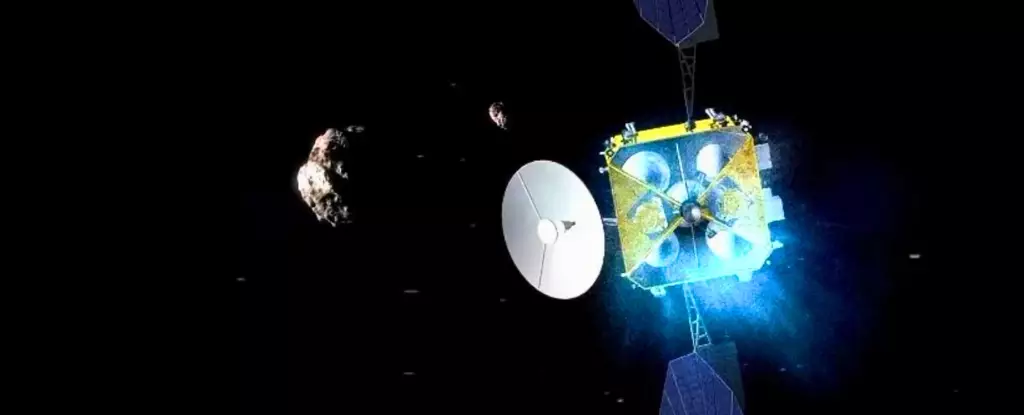China has recently made headlines by successfully launching the Tianwen-2 space probe, marking a significant milestone in its ambitious quest to explore the cosmos. This mission, heralded as the country’s first endeavor to collect samples from an asteroid and return them to Earth, underscores China’s growing prowess in space exploration. With a concerted investment of billions into its space program, China is determined to transform its space narrative into a global tale of achievement, supported fervently by President Xi Jinping’s vision of realizing the “space dream.”
The Tianwen-2 probe, propelled into space by a Long March-3B rocket from the Xichang launch site at the early hour of 1:31 am, reflects years of strategic planning and technological innovation. This moment not only showcases China’s enhanced launch capabilities but also ignites an excitement for potential discoveries that could reshape our understanding of the universe.
The Quest for Cosmic Knowledge
The mission of Tianwen-2 is paramount: it aims to retrieve samples from the asteroid 2016HO3 and investigate the comet 311P. The asteroid, estimated to be between 40 to 100 meters in diameter, is distinguished as a “living fossil.” Composed of primordial materials, 2016HO3 offers insights into the early Solar System’s formation. This bolstering of our cosmic knowledge is essential; understanding such ancient celestial bodies could illuminate the processes that forged our planet and its neighboring worlds.
In parallel, the mission also includes an exploration of comet 311P, which resides in a unique orbit between Mars and Jupiter. Its unusual characteristics invite curiosity from scientists eager to decipher the fragile tapestry of the Solar System. Both components of this ambitious mission not only signify a leap in exploration but also echo mankind’s eternal quest to answer profound questions about our origins.
A Decade-Long Journey
The scope of the Tianwen-2 mission extends across an impressive timeline, anticipated to last around ten years. This extensive duration highlights the challenges that lie ahead. Despite the risks involved in deep-space exploration, there exists a palpable optimism among scientists and mission planners. The expectation of groundbreaking discoveries underscores the importance of this venture, which enriches humanity’s collective knowledge of the universe.
As we observe China’s rapid advancements in space technology, it becomes increasingly evident that these endeavors align with a broader geopolitical ambition. The successful operation of its Tiangong space station, which the country has appropriately branded as the “celestial palace,” reinforces China’s position as a formidable player in space. The recent crewed missions aboard Tiangong exemplify the human aspect of this cosmic journey, cultivating a new generation of astronauts and researchers poised to push the boundaries of human presence in space.
Global Implications and The Future of Space Exploration
China’s burgeoning presence in space exploration serves as a wake-up call for other nations. The Tianwen-2 mission does not merely shine a light on China’s achievements; it also raises questions about collaboration and competition in space. With nations racing to make their mark in the cosmos, the landscape of international space exploration is transforming. As we look ahead, it is evident that the next era of space exploration will require a collaborative spirit, one that embraces shared knowledge and discoveries alike.
China is positioning itself not just to explore, but to inspire a new generation of scientists and dreamers worldwide. As the Tianwen-2 probe embarks on its trailblazing journey, it underscores a pivotal moment in human history—the age of advanced exploration is truly upon us, and the cosmos awaits our discoveries.


Leave a Reply